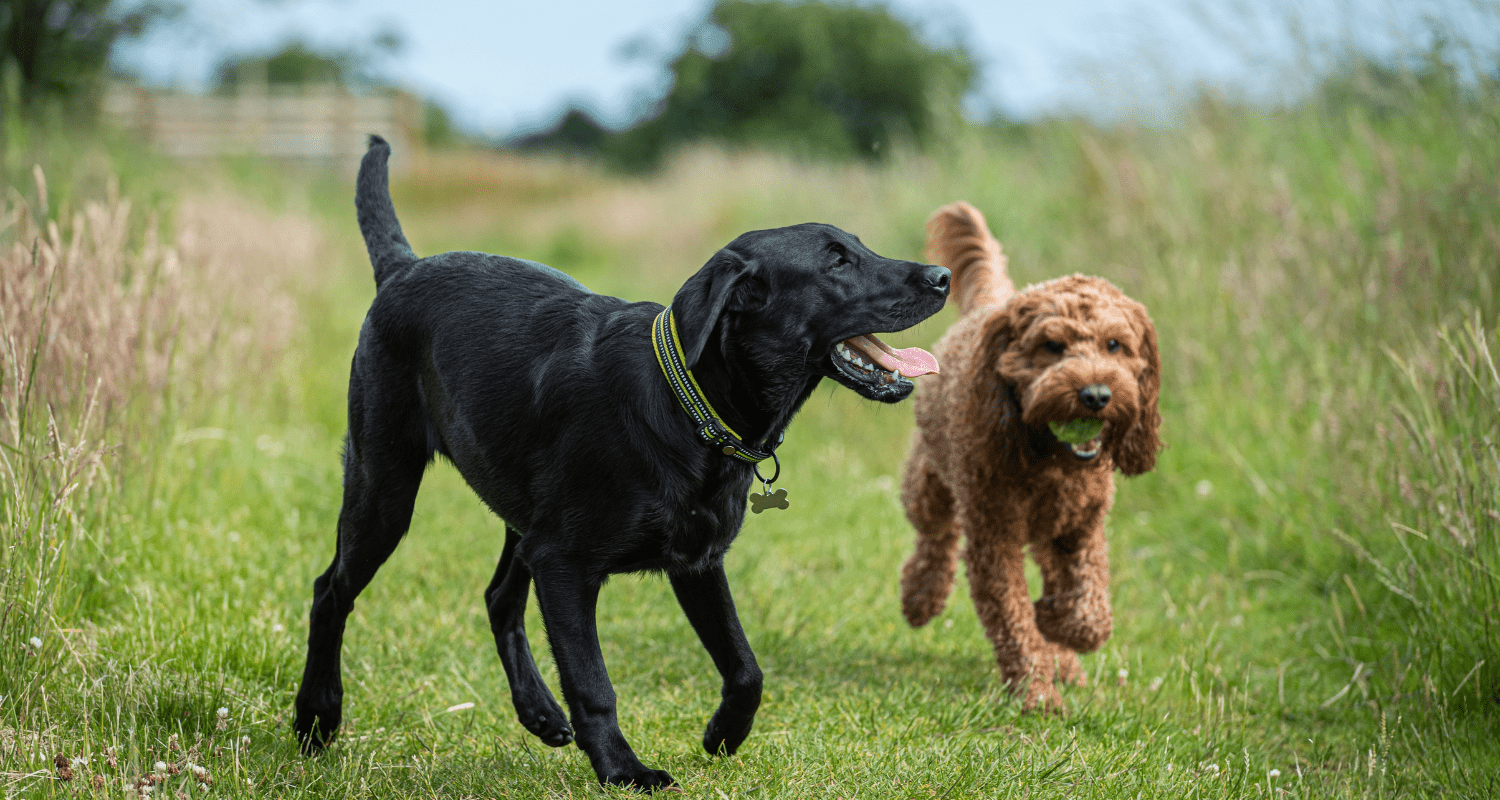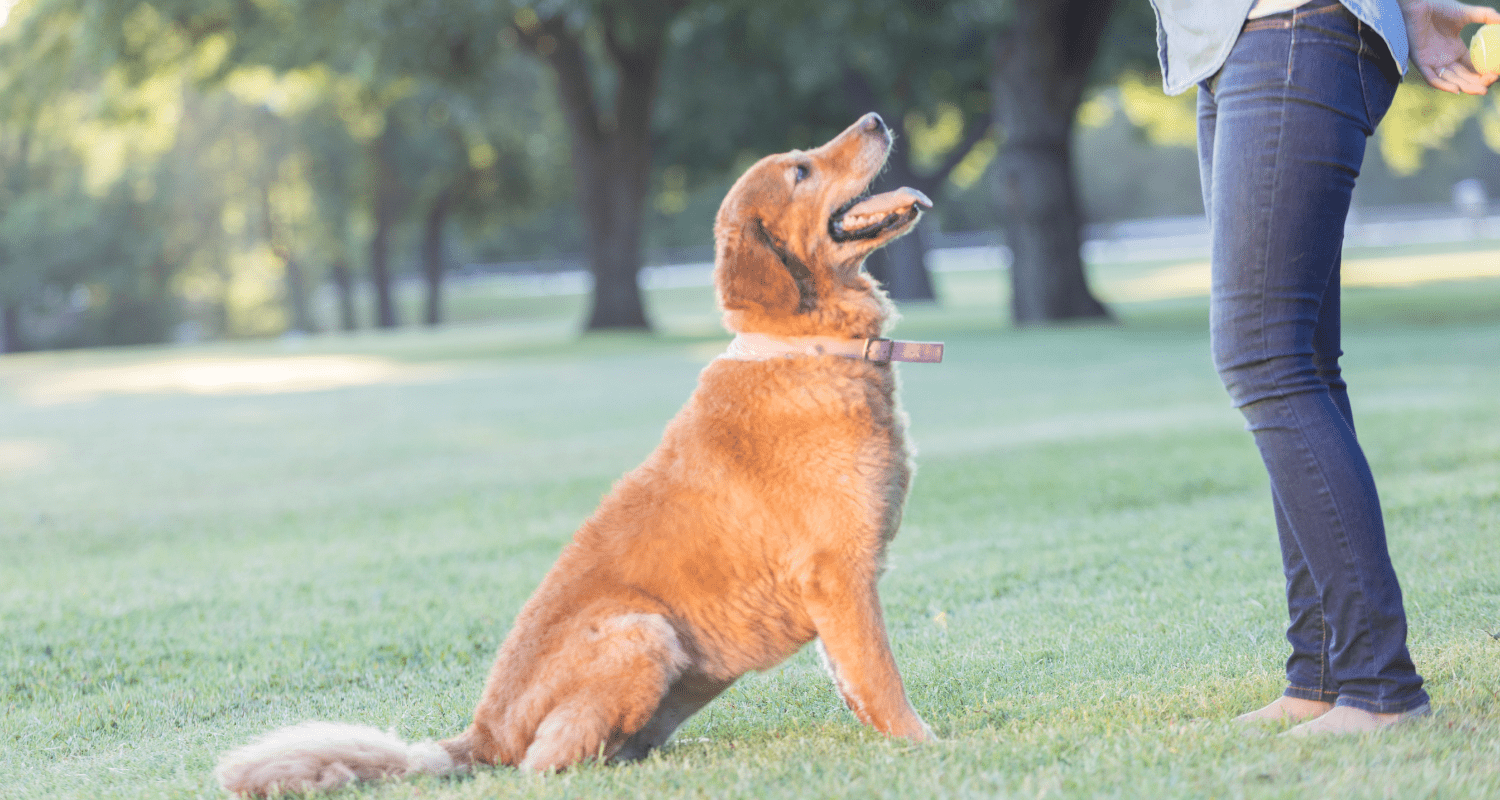If your dog becomes overly excited, anxious, or exhibits undesirable behaviours when encountering other dogs, it can be challenging to enjoy outings or social interactions. However, with patience, consistency, and proper training techniques, you can help your furry friend become better behaved around other dogs. In this blog, we will explore practical tips and strategies to enhance your dog's social skills, promote positive interactions, and create a harmonious relationships with other canines.
-
Early Socialisation: Early socialisation plays a crucial role in shaping your dog's behaviour towards other dogs. Expose them to a variety of well-behaved and friendly dogs from a young age. Gradually increase their exposure, ensuring positive experiences through controlled introductions, playdates, or training classes. Early socialisation helps build your dog's confidence and teaches them appropriate ways to interact with their canine counterparts.
-
Basic Obedience Training: Solid obedience training is fundamental for your dog to behave well around other dogs. Teach and reinforce basic commands such as "sit," "stay," and "leave it." Practising these commands in controlled environments with distractions will help your dog remain focused and responsive even when other dogs are present. A well-trained dog is more likely to exhibit calm and controlled behaviour during interactions with other dogs.
-
Positive Reinforcement: Use positive reinforcement to reward your dog for calm and appropriate behaviour around other dogs. Offer treats, praise, and affection when your dog displays good manners, follows commands, or remains calm in the presence of other dogs. Positive reinforcement reinforces desirable behaviour and helps your dog associate positive experiences with their interactions, creating a positive association with other dogs.
-
Controlled Introductions: When introducing your dog to new dogs, it is important to do so in a controlled and gradual manner. Start with neutral territory and ensure both dogs are on leashes. Allow them to approach each other calmly while keeping the leashes loose. Observe their body language and be ready to redirect or separate them if signs of tension or aggression arise. Gradually increase the duration and proximity of these interactions as the dogs become more comfortable with each other.
-
Proper Leash Etiquette: Proper leash handling is crucial when encountering other dogs. Keep your dog on a short leash to maintain control and prevent them from lunging or becoming overly excited. Avoid tension on the leash, as this can transmit anxiety to your dog. Practice loose leash walking and teach your dog to remain calm and focused while on a leash, even when other dogs are present.
-
Consistent Socialisation and Exposure: Regularly expose your dog to various social situations and environments with other dogs. Attend dog-friendly parks, group training classes, or doggie playdates to provide ongoing opportunities for positive interactions. Consistency in socialisation helps your dog become more comfortable, confident, and well-adjusted around other dogs.
-
Seek Professional Guidance: If your dog's behaviour around other dogs is consistently challenging or problematic, consider seeking assistance from a professional dog trainer or behaviourist. They can provide expert guidance, tailored strategies, and additional training tools to address specific issues and help your dog develop better social skills.
Conclusion: Improving your dog's behaviour around other dogs requires time, patience, and consistent training. By focusing on early socialisation, basic obedience training, positive reinforcement, controlled introductions, proper leash etiquette, and consistent exposure to social situations, you can help your dog become better behaved around other dogs. Remember to respect your dog's individual temperament and progress at a pace that is comfortable for them. With dedication and positive reinforcement, you can nurture your dog's social skills and create positive and enjoyable experiences for both your dog and others they encounter.





Leave a comment
This site is protected by hCaptcha and the hCaptcha Privacy Policy and Terms of Service apply.